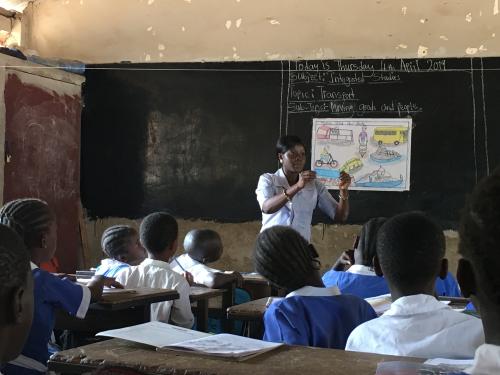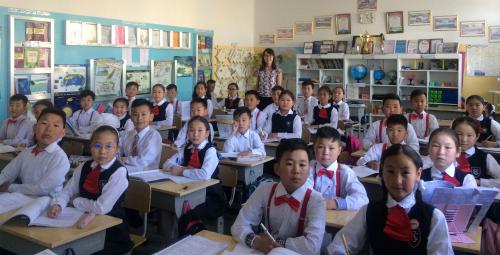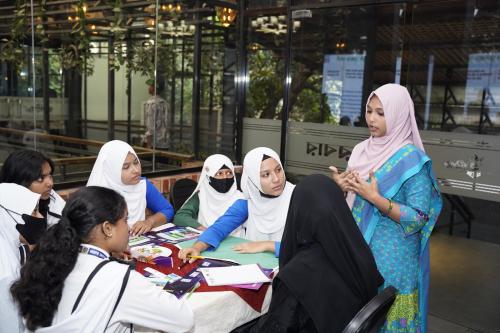This blog is a summary of the report “Capturing 21st century skills: Analysis of assessments in selected sub-Saharan African countries.”
Among the myriad reports providing information and perspectives on the impact of the coronavirus pandemic on education, two have particularly stood out in terms of relevance to Africa. UNESCO’s policy brief on the “Impact of COVID-19 on children” ensures that the broader perspective on children’s lives is taken into account. And the Association for the Development of Education in Africa’s (ADEA) report on “Delivering education at home” amid COVID-19 provides detailed information about how 13 African countries have responded to the crisis. This is particularly relevant given UNESCO’s statement that around half of the total number of learners worldwide do not have access to computers or internet. The grounded approach reflected by ADEA’s rapid mapping assessments to gauge the status of learning in African nations provides us with invaluable information about the diversity of approaches and resources being used, such as radio, TV, and print, as well as internet. This pragmatic approach to finding solutions echoes our experiences conducting a baseline study in 2018 with the support of TALENT, a network focused on education alignment and learning assessment systems in sub-Saharan Africa. In what now seems like a very different time, the study demonstrated how African education systems can see adaptive and effective solutions in what already exists rather than perseverating on notions that every crisis requires new solutions.
As noted by Dimitri Sanga, director of UNESCO Dakar, the study highlights the need for education systems to align learning goals across curriculum, teacher training, pedagogy, and assessment as education demands integration of a broader set of skills across traditional subjects. Importantly, the study introduces the notion of how traditional tests and test questions can be adapted to assess competencies increasingly valued in education, often referred to as 21st century skills or transversal competencies. In sub-Saharan Africa, there is clear evidence of schools’ and teachers’ capacity to recognize the potential of traditional assessment materials to capture student learning, as opposed to mere memorization of information. The report “Capturing 21st century skills: Analysis of assessments in selected sub-Saharan African countries,” authored by Helyn Kim and me (Esther Care), reviews how educators across nine Anglophone and Francophone countries in Africa identified subject-based assessment tools and items that had the potential to assess students’ 21st century competencies. The report highlights the readiness of countries to see the opportunities inherent in their traditional assessments for capturing competencies in skills such as problem-solving, collaboration, and creativity. Currently, these are precisely the competencies that education leaders and teachers, as well as students, need to draw on in times of crisis.
This baseline study was followed by a larger implementation study with The Gambia, the Democratic Republic of Congo, and Zambia, in which ministries of education started to formalize the process of assessing 21st century skills through adaptation of traditional task formats and structures. This implementation study has deepened understanding of how 21st century skills can be integrated into classroom routines and mainstreamed in curricular subjects. While the three participating countries have worked to develop exemplar assessment tasks, accompanied by guidelines for teachers, a more structured effort and further resources are needed to facilitate a quality acquisition of these competencies by students. This research was a starting point—stimulating the dialogue on this topic—while involving all stakeholders, from teachers to curriculum developers. The capacity of central ministry personnel, as well as of teachers in participating schools, to adapt to changing circumstances in education—is precisely what is needed for the post-coronavirus return to school.
To return to the issue of the pandemic and its impact on education, we know that new learning builds on prior learning, so knowing what students have retained or acquired during the out-of-school period is essential for teachers to provide responsive instruction. How do we find this out? We assess. What will be most important to know is how well-prepared the returning students are for the next term’s or next year’s curriculum—and this is a valuable reminder of the centrality of constructive assessment to the provision of responsive education. Educators in the countries that participated in these studies have demonstrated their flexibility and readiness to adapt what is available to what is needed. Once students return to school, this readiness will be called upon. Teachers must design and develop assessment materials that can target the range of educational achievement across both core subjects and 21st century skills so they can review or tailor the next learning steps for their students.
The Brookings Institution is committed to quality, independence, and impact.
We are supported by a diverse array of funders. In line with our values and policies, each Brookings publication represents the sole views of its author(s).









Commentary
Assessment in sub-Saharan Africa: Capturing 21st century skills
September 14, 2020